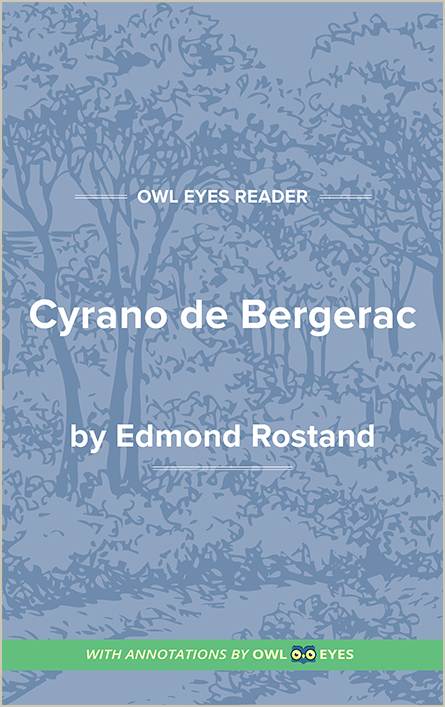Study Guide
Analysis Pages
Edmond Rostand Biography
This descendant of Pierre Corneille and Victor Hugo, the last great romanticist of the French theater, was born the son of a prominent journalist and economist. Like so many other dramatists, Edmond Rostand (raw-stah) was educated in law, although his interest was in poetry. His first publication was a book of poems, Les Musardises, published in 1890 and dedicated to Rosemond Gérard, whom he married that same year. Generally considered overly personal, his book earned less respect than his wife’s collection of poems Les Pipeaux (1889), cited by the French Academy for its sensitivity.
Despite his unpromising beginning and his dislike of the climate, he settled in Paris as a professional writer. While he never sought praise or even approval—indeed, his inclinations, interests, and tastes ran counter to the feeling of the times—he won both for the 1894 Comédie Française production of The Romancers (the title has also been translated as The Romantics), a slight comedy in which the young lovers take their cues from Romeo and Juliet. He wrote several plays for actress Sarah Bernhardt: In The Far Princess she played the title role, falling in love with a troubadour; in The Eaglet Bernhardt essayed the role of Napoleon’s ineffectual son.
Edmond Rostand’s penchant for writing starring roles for outstanding actors gave the world its most famous poetic drama, the historical romance Cyrano de Bergerac, starring the great Coquelin. Before the year of its production ended, the play had been translated into several languages, and it has been produced all around the world. The swashbuckling hero, a romanticized version of the historical personage bearing that same name, is a household word standing for the idealist who refuses to give in to the demands of the world.
So great was the young playwright’s reputation that in 1900 he was appointed an officer of the Legion of Honor, and in 1901 he became a member of the French Academy. His health failing in that same year, he built a villa in southern France, where he lived most of the time until his death in Paris, December 2, 1918. His writing was affected by ill health and diminished energy, but...
(The entire page is 558 words.)
Owl Eyes subscribers get unlimited access to our expert annotations, analyses, and study guides on your favorite texts. Master the classics for less than $5/month!

